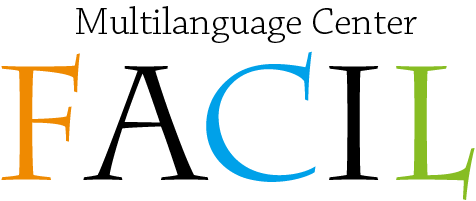Here is a sample of the types of activities that FACIL has been involved in up until now. This includes not just translation services but also webpage and pamphlet design in multiple languages. Please take time to look at the types of businesses that FACIL has been used for.
| Community Service Announcements for Residents | ||
|---|---|---|
|
“We want to relay community information to foreign residents so they can participate as local citizens of the community!” There is a tendency to think information that is regularly available on mediums such as television news programs is easily understood by everyone in society. However, the reality is that there are many multi-ethnic residents who cannot understand much of this information owing to modest Japanese language ability. |
|
|
| Matters Regarding Sister-city Relationships | ||
|---|---|---|
|
“We want to send a letter to our sister-city!” We have staff that can communicate in multiple foreign languages in a casual setting, but I’m worried about what kind of language to use in official settings. |
|
|
| Surveys aimed at Local Residents whose Native Language is not Japanese | ||
|---|---|---|
|
“We want to hear the opinions of residents with foreign nationalities by conducting a survey with multi-ethnic residents as the subject!” We want to conduct various public opinion surveys see if our policy measures are working. However because of language barriers between us and the ethnic minority residents we are unable to find a way of approaching these residents. In the end all of our surveys end up only collecting the opinions of the Japanese residents. |
|
|
| Matters Regarding the Hosting of Overseas Tourists | ||
|---|---|---|
|
“Weren’t those tourists from overseas…? When we think of how to entice tourists in languages other than Japanese, English, Chinese and Korean languages naturally come to mind. But can you think other languages to which to make your town more appealing? |
|
|
| Matters Regarding Disaster Prevention | ||
|---|---|---|
|
“We want to help foreign and ethnic minority residents who find themselves caught up in natural disasters by creating a system of community support and providing them regular emergency information.” Even though they can speak in Japanese, they can’t read. Also there are many foreign residents who don’t know about the kinds of natural disasters that occur in Japan. |
|
|
